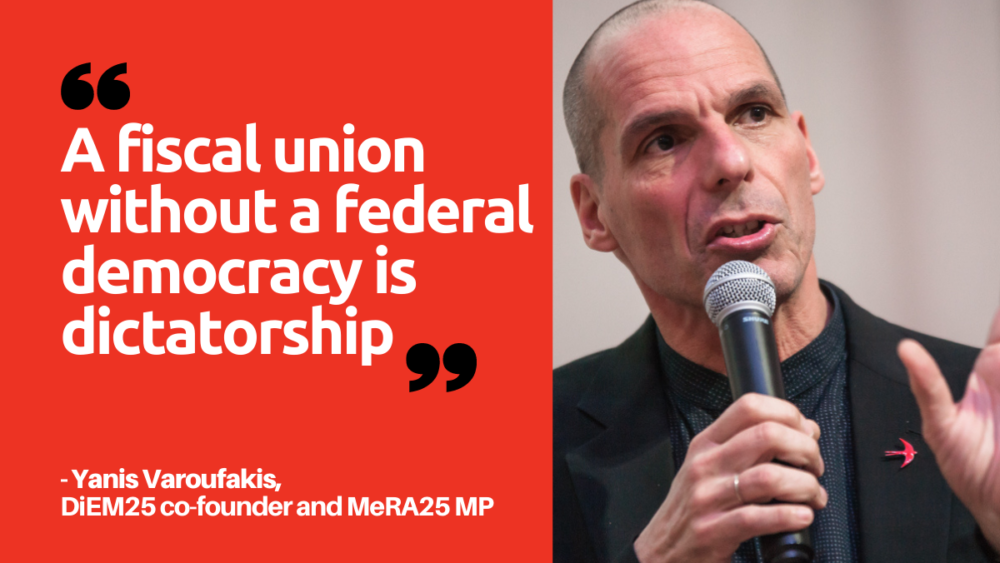The London School of Economics and Political Science interviews Yanis Varoufakis
A discussion featuring Yanis Varoufakis, chaired by Kevin Featherstone, and organised by the German and Hellenic Society of the London School of Economics. It tackled the main question: is the Recovery Fun a step towards federations and fiscal / political unity, or is it another lost opportunity and step towards fragmentation?
Highlights
When you say that the Recovery Fund may be inadequate, are you implying a support for a much stronger fiscal union and a parallel political union, and what would this EU look like?
“The European Union needs to morph into a federal republic. Once you create a common currency; then you have to create a political union. Because a fiscal union without a federal democracy is dictatorship. (…) Either we move in the direction of a federation, or the whole thing is going to buckle. Europe is very rich and we have the capacity to keep wasting our economic energy while delaying the federation.”
“This Recovery Fund is not the right path towards federation. It is taking us further away from federation. My criticism is not that it is not taking us towards federation fast enough, but it is undermining — it is dynamite in the path of federation. I’m a federalist, I declare it, clearly.”
Why is it the wrong direction?
“A process that brings us together has to be automated. You cannot leave it up to the politicians. (…) When 2020 hit, some areas, some regions in the UK suffered more than others; unemployment rose faster in Yorkshire as compared to Sussex. And, usually — but not always — the greater need for fiscal transfers arises in the poorer regions. (…) The beauty of a fiscal union, a political union, is that the transfers are automated. That no one has to sit around the table and decide: I’m going to take so much money from Jill to give it to Jack. Imagine the disaster that it would have been for the UK if when the pandemic hit, the UK had to do what happens in Brussels with the European Union Council. That is, if a representative from the northeast of england, a representative of the southeast of england, a representative from north wales, south wales, scotland — they had to sit around the table and negotiate how to effect a iscal transfer. It would be poison. All sorts of moralising fingers would be pointed at people.”
“It is true that we are talking about a major shift — at least at the conceptual level, because this time, the money that the European Union is going to borrow to cover the Recovery Fund, is going to be borrowed by, effectively, Eurobonds. The EU commission bonds are Eurobonds because they are on behalf of everyone — they are homogeneous, they are not fragmented.”
“I know who is going to get the money. And I can tell you it’s not going to be small businesses. It is not going to be the start ups of the young people that we need to retain in Greece to stop the Brain Drain. It will be the same old oligarchs that caused the bankruptcy in the first place.”
Volete essere informati delle azioni di DiEM25? Registratevi qui!




